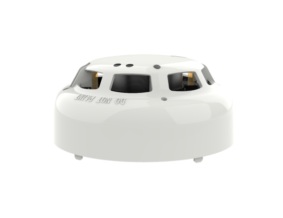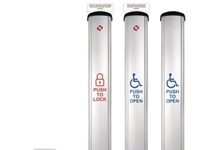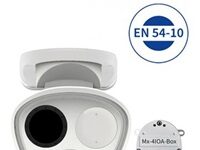
Life safety systems manufacturer Hochiki Europe has launched a range of sensors with short circuit isolators (SCI), which identify and divert power from devices that have short-circuited. The fully addressable SCI sensor collection also includes a heat- (ATJ-EN(SCI)) and multi-sensor (ACC-EN(SCI)).
In some parts of Europe, legislation stipulates that changes made to to any part of a life safety system should be accompanied by the installation of another isolator onto the
network. Built into the devices rather than in an SCI base, the short circuit isolator technology incorporated in Hochiki Europe’s new range means specifiers and end users needn’t purchase additional bases. Features include:
• Fully addressable
• Short circuit isolators (SCI), which identify and divert power from devices that have short circuited
• Real-time updates on performance, with LED status indicators displaying when a sensor is polling, isolating or in alarm
• ATJ-EN (SCI) heat sensor combines both fixed temperature and rate-of-rise detectors for added reliability
• ACC-EN (SCI) features user-selectable modes. Sensors can be programmed to allow either – or both simultaneously – the optical and/or thermal fire detection methods
“When it comes to life safety solutions, we know our customers in Europe need products which have been designed with efficiency and dependability in mind,” said Paul Adams, marketing manager at Hochiki Europe. “Our competitively-priced SCI sensors offer a reliable and efficient solution for specifiers and consultants, helping them meet legislative challenges and budget considerations. This launch is the latest step in our ongoing commitment to providing our customers with the most effective life safety technology.” Hochiki Europe’s SCI sensors are compatible with the company’s comprehensive enhanced systems protocol (ESP) intelligent range. This open protocol, supported by many leading control panel manufacturers, offers further reliability and compliance to the highest international standards











